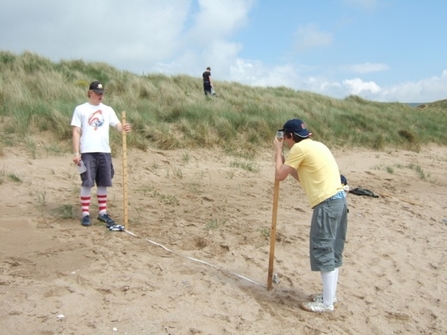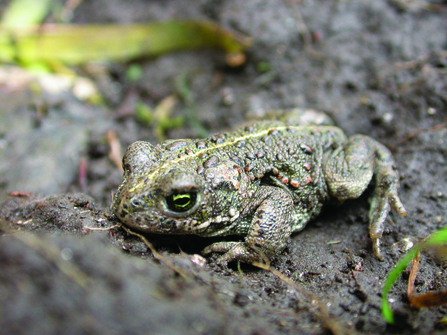
Students can now apply for a £250 bursary to research Cumbria's sand dunes. The students pictured are surveying at Oxwich in Wales © Dynamic Dunescapes

Students can now apply for a £250 bursary to research Cumbria's sand dunes. The students pictured are surveying at Oxwich in Wales © Dynamic Dunescapes
Dynamic Dunescapes, which is rejuvenating the nation’s sand dunes, is offering bursaries of up to £250 for students to carry out a sand dune research project in Cumbria.
Sand dunes are home to many special plants and animals, from natterjack toads and dragonflies to orchids – and they’re also great pockets of wilderness to explore. However, they are becoming increasingly scarce, putting the wildlife that lives there at risk.
Dynamic Dunescapes, a nationwide project, is working hard to restore some of the most important sand dunes systems, including here in Cumbria. The project has announced that it is offering students aged between 16 and 25 an unmissable opportunity to get involved with their work.

Natterjack toads are rare but you have the opportunity to help conserve them © Philip Precey
Eve Mulholland, Dynamic Dunescapes Engagement Officer with Cumbria Wildlife Trust, explains: “We’ve created a variety of exciting research project opportunities for students to explore, that will directly help our dunes in Cumbria. They range from investigating invertebrate and key plant species, which may include solitary mining bees and pioneer species such as the delicate sticky stork's-bill, to studying the rare and nationally scarce dune helleborine orchid. There are also opportunities for students to study and map the distribution of yellow meadow ants and to search for a small endangered plant called yellow bird's-nest."
Eve explains why sand dunes are so important: “Over recent years, climate change, changes in land use, loss of rabbit populations and the increase in nitrogen deposition, have all accelerated the growth of vegetation on sand dunes. This puts pressure on specialist plants and animals that rely on the open sandy habitat to thrive. Working closely with Dynamic Dunescapes partners and environmental bodies, the students’ research projects will help us build on our understanding of these important species and how these precious habitats should be managed in the future.”
The lucky students who are selected will work at some of Cumbria’s top nature reserves: at Sandscale Haws National Nature Reserve (NNR) managed by the National Trust, North Walney NNR managed by Natural England and South Walney Nature Reserve managed by Cumbria Wildlife Trust.
The students’ projects can be carried out as part of undergraduate, masters or PHD study, to develop research and/or practical skills or to gain field-based experience.
The deadline for applications is 29 March 2021. If you think this is for you, click here for full details about the research projects, application and bursary eligibility please visit:
For more details contact Eve Mulholland, Dynamic Dunescapes

Dynamic Dunescapes is funded by the National lottery Heritage Fund and EU Life Programme. Project partners include Natural England, Plantlife, The National Trust, Natural Resources Wales and the Wildlife Trusts. The pioneering project is working across 34 sites and is undertaking 7,000 hectares of restoration work to rejuvenate our sand dunes – the habitat most at risk in Europe for biodiversity loss.